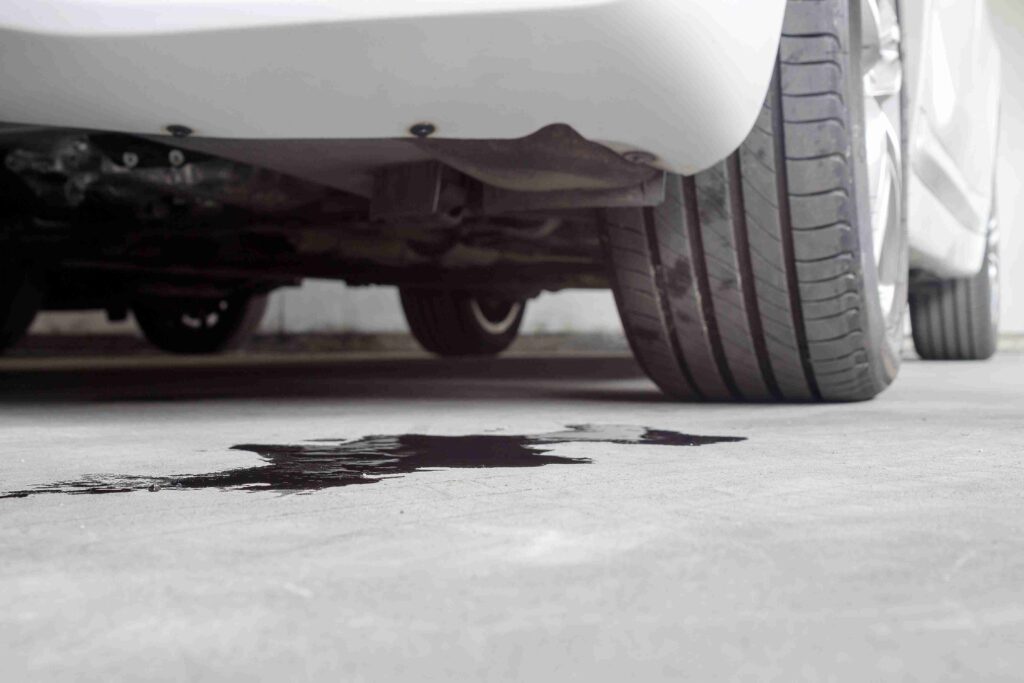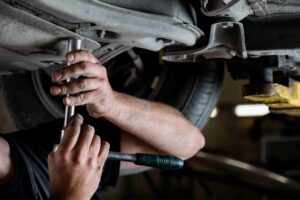Are Oil Leaks Covered Under Warranty?
Are oil leaks covered under warranty? If your car is covered under a manufacturer or factory warranty, repairs are generally covered at no cost to you. However, most manufacturer warranties only last a certain amount of time or mileage, with most standard factory warranties ending at 3 years or 36,000 miles. If your car’s oil leaks unexpectedly and your manufacturer’s warranty expired, then you’ll left paying those costly repair bills on your own.
It’s important to check the warranty information for your specific vehicle before making any repairs. Some warranties may cover the cost of repairs, while others may only cover the cost of replacement parts.
Manufacturer’s Warranty
Oil leaks are commonly covered by the vehicle’s Manufacturer Warranty. This coverage typically applies to defects in materials or workmanship during the warranty period. The warranty duration for a vehicle’s headlights can vary. It may range from a few years to the vehicle’s lifetime. Check your vehicle’s warranty documentation or contact the manufacturer for coverage period.
Manufacturer warranties frequently include exclusions, such as coverage for typical wear and tear or damage resulting from accidents, misuse, or modifications by the owner. Should your vehicle’s oil leak, you can usually get it fixed or replaced at an authorized dealership or service center. In order to secure warranty coverage for your vehicle, proof of ownership is typically required. This can be provided through your vehicle’s registration or purchase documents.
Extended Warranty
Consumers may choose to buy extended warranties to cover oil leaks. These are frequently provided by third-party companies or retailers and can offer coverage beyond the manufacturer’s warranty. Carefully review the policy to understand the coverage and circumstances for repairs under extended warranties.
The Mopar Maximum Care Warranty, also known as the “bumper-to-bumper” warranty, is the most comprehensive extended coverage available for Chrysler, Dodge, Jeep or Ram. It extends your Chrysler, Dodge, Jeep or Ram’s powertrain and basic component coverage beyond the 3-year/36,000-mile manufacturer’s warranty. Additionally, it covers more than 5,000 components, providing virtually complete mechanical coverage for your vehicle.
The only components not covered under this warranty include:
- Maintenance services and items used in such services.
- Glass, plastic lenses.
- Body and paint items, including soft trim.
- Wear items such as manual clutch assembly, brake pads, shoes, rotors, drums and belts are not covered at any time.
- Snowplows, winches and trailer hitches
Common Causes Of Oil Leaks
When it comes to the smooth operation of your vehicle, maintaining the right oil levels is crucial. However, many car owners are often faced with the pesky issue of oil leaks.
Worn Out Gaskets and Seals
One of the primary culprits behind oil leaks is the wear and tear of gaskets and seals. Over time, these vital components can deteriorate due to exposure to extreme temperatures and the constant cycling of the engine. Whether it’s the valve cover gasket, oil pan gasket, or other seals within the engine, a compromised gasket can lead to oil seepage, causing unsightly puddles beneath your vehicle.
Loose or Damaged Oil Drain Plug
Another common source of oil leaks is a loose or damaged oil drain plug. The oil drain plug is responsible for sealing the oil pan and preventing oil from escaping. If it becomes loose or damaged, it can lead to a slow but steady oil leak. Regularly check the tightness and condition of your oil drain plug during oil changes to avoid this issue.
Faulty Oil Filter
A malfunctioning oil filter can also contribute to oil leaks. As the filter ages, it may develop cracks or fail to seal properly, allowing oil to escape. Regularly replacing your oil filter during routine maintenance is crucial to prevent leaks and ensure the effective filtration of contaminants from your engine oil.
Oil Pan Damage
The oil pan, situated at the bottom of the engine, is susceptible to damage from road debris, rocks, or other obstacles. A punctured or cracked oil pan can lead to significant oil leakage. Inspect your oil pan for any signs of damage and address any issues promptly to prevent further complications.
Overfilled Oil Levels
While maintaining the right oil levels is essential, overfilling your engine with oil can be just as detrimental. Excess oil can lead to increased pressure within the engine, pushing oil past seals and gaskets. Always follow the manufacturer’s recommendations for oil capacity and adhere to proper oil change procedures to avoid overfilling.
How To Prevent Oil Leaks
Preventing oil leaks is essential to keep your vehicle running smoothly and avoid the headaches associated with oil-related issues. By adopting a proactive approach, you can significantly reduce the likelihood of oil leaks and extend the lifespan of your engine.
- Regular Inspections and Maintenance – Regularly inspecting your vehicle is crucial for identifying potential issues before they escalate. Keep a watchful eye on gaskets, seals, and the oil pan during routine maintenance checks. Address any signs of wear, tear, or damage promptly to prevent oil leaks from occurring.
- Follow Manufacturer Recommendations – Adhere strictly to the manufacturer’s recommendations for oil change intervals and oil types. Using the right oil viscosity and changing it at the recommended intervals ensures optimal engine performance and reduces the risk of oil leaks. Check your vehicle’s manual for specific guidelines tailored to your make and model.
- Properly Torque Oil Drain Plug – During every oil change, ensure that the oil drain plug is tightened to the manufacturer’s specifications. Using a torque wrench helps achieve the correct tightness, preventing the plug from coming loose and causing leaks. Regularly check the condition of the oil drain plug and replace it if any damage is detected.
- Choose Quality Oil and Filters – Invest in high-quality engine oil and filters. Choosing reputable brands and products designed for your vehicle can enhance the overall health of your engine and reduce the likelihood of leaks. Look for oil filters with excellent sealing capabilities to ensure a tight fit.
- Avoid Overfilling – When adding oil during an oil change, be cautious not to overfill the engine. Follow the recommended oil capacity specified by the manufacturer. Overfilling can lead to increased pressure, forcing oil past seals and gaskets, resulting in leaks. Take the time to measure and pour the correct amount of oil.
- Protect the Oil Pan – Shield the oil pan from potential damage by avoiding rough driving on uneven terrain. Be cautious of road debris, rocks, and other obstacles that could harm the oil pan. Installing a skid plate or guard can provide an extra layer of protection, reducing the risk of punctures and cracks.






